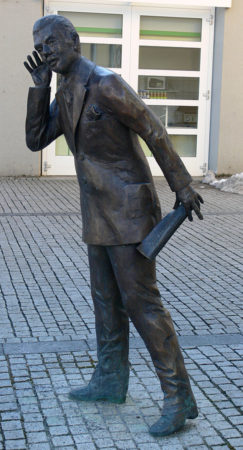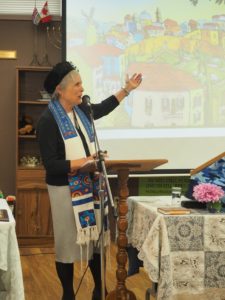Dear friends,
It has been a week since our beloved mother, Mary Greenhough, died. I have had many notes and calls of consolation from many of you, and I want to tell each of you how grateful I am to all of you. We have been swimming in food, in cake, but most of all love. As a result, even in this time of loss, I have never felt lost, and I have never felt alone. Thank you.
Mum died and began her journey of “going home” during the week of journeys, of Matot-Masei. Yet, as we move forward, we must also reflect back on what has been. This week we open the book of words, of Devarim. Even as we try to capture a lifetime in a hesped, the words of eulogy at a funeral, Moses, in Devarim, tried to capture and re-tell the most salient points of the past 40 years for the Israelites to remember as they prepare to enter the Land. “Eileh devarim, these are the words”….he begins. In Chapter 1 verse 9, Moses says to the people. “I cannot carry you alone.” None of us can move forward alone. Like Moses, we need each other to bring us wisdom and understanding, good judgement and diligent help. I am so grateful to be part of our Kolot Mayim community and of the Jewish community beyond our own home.
In my mother’s honour I would like to observe Tisha B’Av this Saturday night, August 10th . We will read sections of the book of Eichah, as we mourn the destruction of the Temple, of Jerusalem, and of the catastrophes that have befallen us as a people.
With love,
Rabbi Lynn

 Imagine being on the other side of Torah. We read these words, and we “hear” them perhaps, often as if we were speaking these words to ourselves, but imagine if we were there (wherever there is – maybe here?) and we were listening. Lots of words are going by us, hour after hour – how are we ever going to remember all these details? We may be hungry, we may need to sit down, our children are fussy, and still, Moshe goes on and on about what we need to know. Remind you of some synagogue services you have sat through?
Imagine being on the other side of Torah. We read these words, and we “hear” them perhaps, often as if we were speaking these words to ourselves, but imagine if we were there (wherever there is – maybe here?) and we were listening. Lots of words are going by us, hour after hour – how are we ever going to remember all these details? We may be hungry, we may need to sit down, our children are fussy, and still, Moshe goes on and on about what we need to know. Remind you of some synagogue services you have sat through?
 This has been a wonderful first year at Kolot Mayim for me. We have learned Torah together, we have rearranged where we meet (Deli side), we have begun new duties (Char Ashford has taken on being our Gabbai) and last week we started what I hope will be a regular Friday night Shabbat dinner together with our “Shabbat is in the Bag” evening. We have welcomed new members and welcomed returning members; during this coming year we will be working towards continuing that increase in our membership.
This has been a wonderful first year at Kolot Mayim for me. We have learned Torah together, we have rearranged where we meet (Deli side), we have begun new duties (Char Ashford has taken on being our Gabbai) and last week we started what I hope will be a regular Friday night Shabbat dinner together with our “Shabbat is in the Bag” evening. We have welcomed new members and welcomed returning members; during this coming year we will be working towards continuing that increase in our membership.
Noach
October 30, 2019 by Rabbi Lynn Greenhough • From the Rabbi's Desk Tags: noach •
Shavua tov, everyone. I am just back from Rabbi Allan Finkel’s installation as rabbi for Temple Shalom, the Reform synagogue in Winnipeg. What a weekend. Rabbis Stewart Gordon of NYC joined us as did Rabbi Billy Love, a rabbi/lawyer/judge from Philadelphia, who sat on our beit din in New York when we were ordained. We celebrated Rabbi Allan’s installation with a grand reunion over much eating! We seem to have a direct link between Winnipeg and Victoria – with much to celebrate.
More